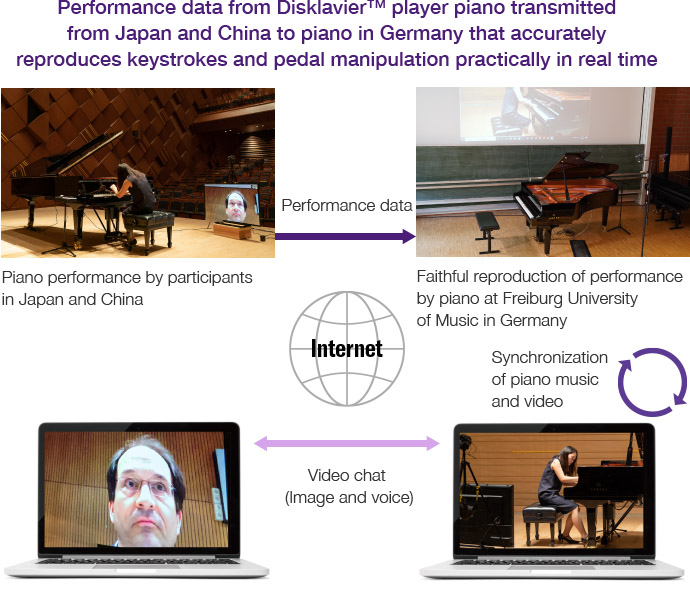SPECIAL FEATURE 01
New Business Opportunities and Contributions to Resolution of Social Issues through Remote Solutions
Under the Make Waves 1.0 medium-term management plan, the Yamaha Group aims to improve lifetime value by developing direct ties with customers in both digital and physical spaces. Faced with the massive changes to the business environment as a result of the global COVID-19 pandemic, we aim to explore new business opportunities to ensure that we are able to contribute to the resolution of various social issues while continuing to foster ties between people through music and musical instruments. Here, we will look at some case studies highlighting such business proposals.
CASE STUDY 01
SYNCROOM Online Remote Ensemble Performance Service
Standard online conference and IP telephony systems are designed with telephone calls and meetings in mind. As these systems often entail slight delays in the transmission of sound, they are not suited to delivering the type of realtime synchronicity required for ensemble performances. Yamaha took a step toward resolving this issue in 2011 when it launched the beta version of an app using its proprietary NETDUETTO™ technology. This technology makes it possible to perform music in real time with people in remote locations by transmitting data through the internet in a manner that minimizes delays in sound. In 2014, the next step was taken with the launch of the NETDUETTO Lab test website. After releasing the beta version, we proceeded to incorporate user feedback to refine our technology as we continued to update the application. Then, in April 2020, amid the COVID-19 pandemic, we announced in Japan the SYNCROOM online remote ensemble performance service, which uses this technology to allow for remote ensemble performances to be conducted by multiple people playing separately in their own homes. This service drew a great deal of attention. In June 2020, we augmented this service with the launch of an official application for Windows and macOS that features reverberation, metronome, and recording functions. SYNCROOM now makes it possible for multiple users at up to five locations* as one "Room" to conduct remote ensemble performances. This service can be used for free simply by installing the computer app and signing up for an account. By helping multiple musicians take part in ensemble performances from separate locations with this service, we hope to inject a little more positivity into our new lifestyles.
* By connecting two Rooms, it is possible to link up to 10 locations.
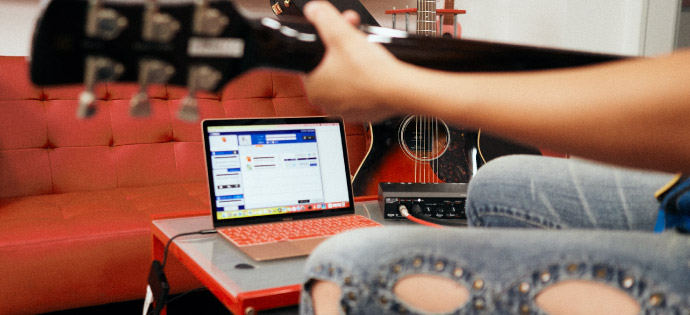
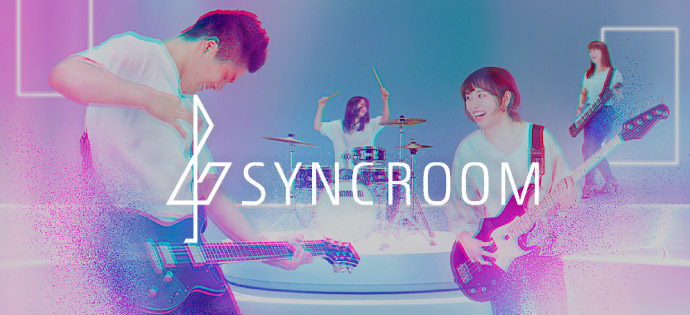
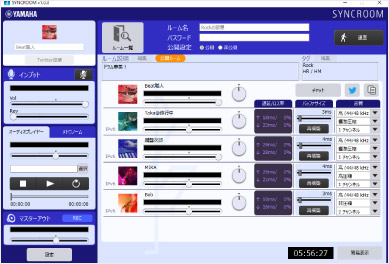
SYNCROOM desktop app
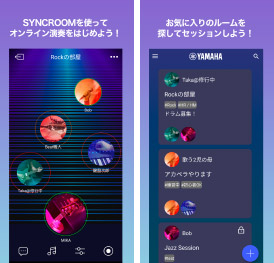
SYNCROOM mobile app
CASE STUDY 02
Support for Remote Entrance Exams at Freiburg University of Music
Yamaha is offering support to the Freiburg University of Music in Germany for conducting remote entrance exams. In offering this support, we utilize Yamaha’s Disklavier™ player piano, which features an automatic performance function that can accurately reproduce even the most minute differences in keystrokes and pedal manipulation. The Freiburg University of Music is an internationally renowned music school with a unique presence in global society that has continued to foster countless famous musicians since its establishment in 1946. Under normal circumstances, aspiring musicians from around the world would gather in June to take this school’s entrance exams, which include practical musical instrument performance tests. In 2020, however, the pandemic made it unfeasible for people from other countries to take examinations at the school. For this reason, the Freiburg University of Music utilized Yamaha’s instruments and technologies to arrange remote entrance exams that made it possible for applicants to undergo piano performance tests from remote locations. Piano performance tests were carried out remotely by establishing internet connections between Germany and Japan and China. The performances of participants in Japan and China were faithfully reproduced by pianos in Germany. This method proved immensely successful, and both examiners and performers were satisfied with the results. In the future, we will promote the further utilization of our technologies, which help people in different locations share the same performance experience, with an eye to applying these technologies to standard music lesson sites. We thereby aim to propose solutions that address issues pertaining to losses of opportunities due to social conditions or geographic restrictions.
CASE STUDY 03
Remote Music School Lessons
We have been forced to halt lessons at music schools around the world due to the COVID-19 pandemic. However, committed to supporting the uninterrupted learning of students, even during the prolonged closure of music schools, we have begun conducting remote lessons via the internet. In March 2020, a directly operated music school in Boston in the United States began offering remote group lessons via an online remote service. Approximately 90% of the school’s students signed up for these lessons, indicating clear demand. In countries with unreliable communications infrastructure, such as Indonesia and Latin American countries, we went beyond simply providing remote lessons to offer additional value by having students send teachers videos of their at-home practice after lessons to receive feedback. By arranging lessons based on the needs of specific customers and regions, we sought out the most effective form for our remote lessons. In Japan, as well, we offered free online lessons in seven prefectures in April 2020 following the institution of the government’s state of emergency declaration (official paid remote lessons were introduced in June). We are also utilizing digital learning material distribution services in addition to the materials used for standard lessons and taking other steps to update lesson content and environments to be suited to online lessons.
Going forward, we will seek to develop frameworks to ensure that lessons can be taken with peace of mind even after standard in-person lessons are resumed while developing new service systems to provide additional value by combining in-person and online lessons.
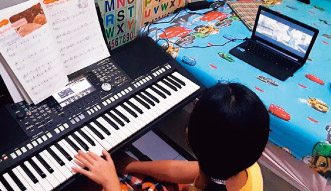
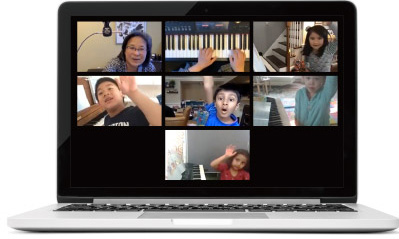
CASE STUDY 04
Remote Cheerer powered by SoundUD™ Remote Cheering System
Yamaha is moving ahead with the development and verification of the Remote Cheerer powered by SoundUD™ remote cheering system, which allows vocal support to be transmitted to sports stadiums from remote locations with the touch of a smartphone or other device. This system utilizes a technology developed out of the desire to help sports fans that cannot visit the stadium for whatever reason to cheer on their favorite team together with fans at the venue and have that support transmitted to the venue. The resulting solution is garnering a great deal of attention as concern rises for a possible second wave of COVID-19 infections due to its ability to allow sports fans to enjoy cheering on their teams while maintaining social distancing and accommodating our new lifestyles.
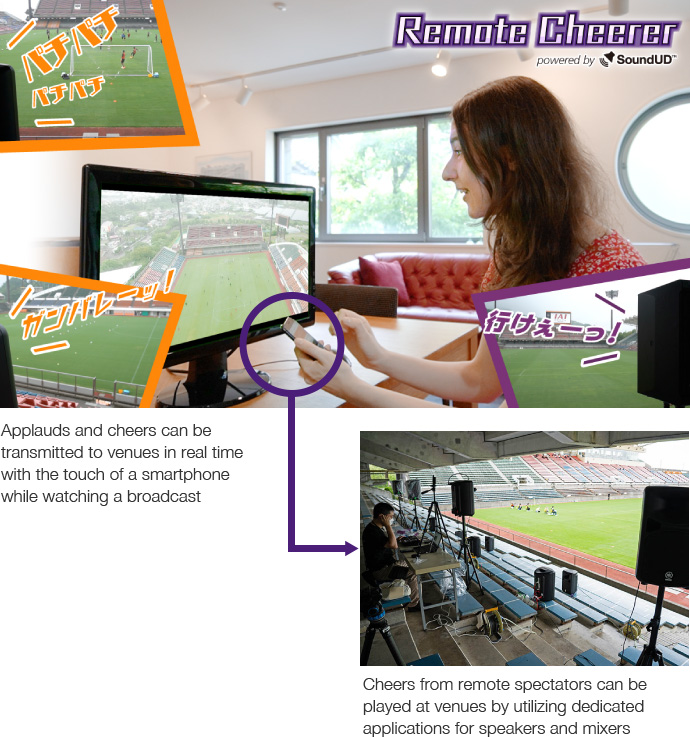
Improvement of Lifetime Value by Helping Resolve Social Issues Amid the New Normal
The global COVID-19 pandemic greatly impacted Yamaha’s business activities while also presenting new business opportunities through the acceleration of the trend toward
a remote society.
People are increasingly staying home to prevent the spread of COVID-19, and this behavioral change is driving changes in awareness, subsequently transforming the issues and needs of customers. People now face issues in how they are unable to take part in band performances with their friends, hold concerts or other live performances, or take music lessons. There are also many who desire to transmit their cheers to sports stadiums as sporting events are held without audiences. Yamaha looks to address these new issues by providing various solutions that capitalize on its robust soundrelated expertise and network technologies. To this end, Yamaha assembled a cross-divisional project team tasked with analyzing the issues arising from our new lifestyles, investigating and developing effective solutions, and formulating plans for commercializing these solutions. The efforts of this project team might not immediately lead to the creation of new businesses, but they will still be advanced to have a wider range of customers experience our services so that we can develop closer ties with them to be leveraged in the new normal after the pandemic. After this, we will look to develop various solutions for improving lifetime value into new businesses.

